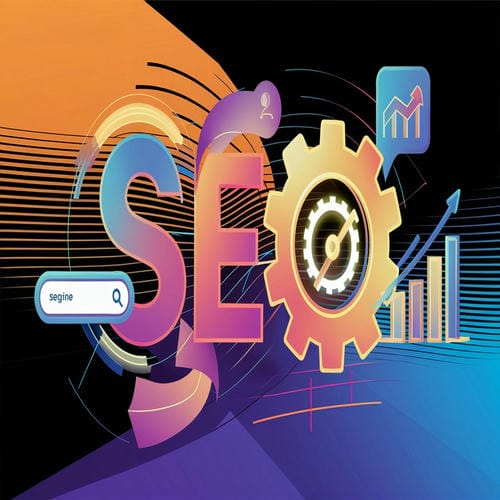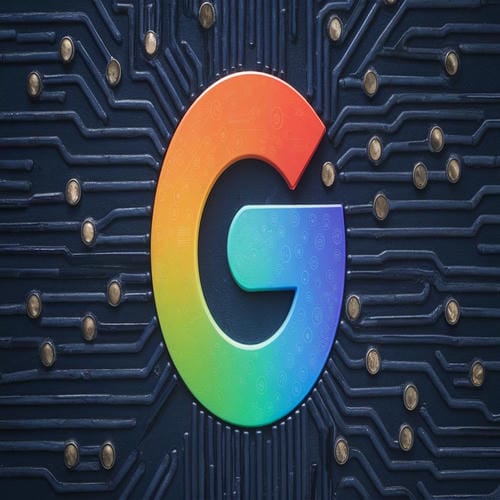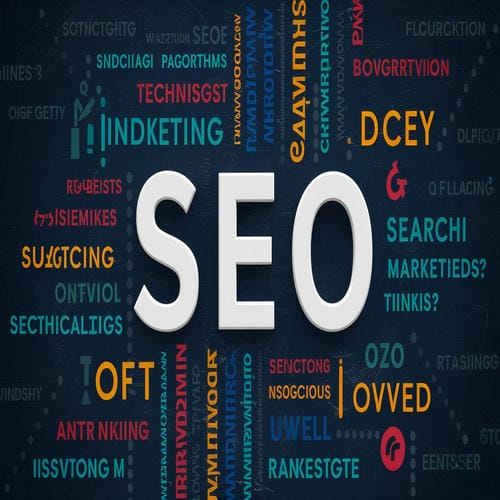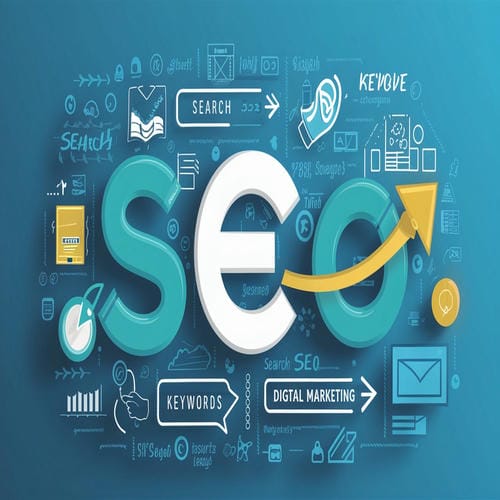Have you ever searched for something on Google and wondered why certain websites appear at the top of the results page? That’s where SEO, or Search Engine Optimization, comes into play.
In today’s digital age, understanding how SEO works can make a significant difference in how businesses and websites attract online visibility and organic traffic.
You have a fantastic website offering valuable products or services, but if potential customers can’t find you online, your efforts may go unnoticed. SEO is the art and science of optimizing your website to rank higher in search engine results pages (SERPs), making it easier for people to find you when they search using keywords related to your business.
In this article, we’ll delve into the world of SEO in digital marketing. We’ll explore how search engines work, the differences between organic and paid search results, and how SEO fits into broader digital marketing strategies.
Whether you’re new to SEO or looking to refine your understanding, this guide will equip you with the knowledge to navigate the digital landscape effectively. Let’s dive in.
What is SEO in Digital Marketing?
Search Engine Optimization (SEO) is a fundamental strategy in digital marketing aimed at improving a website’s visibility and ranking in search engine results. In essence, SEO involves optimizing various elements of a website to align with search engine algorithms, thereby increasing organic traffic from search engines like Google, Bing, and others.
1. Importance of SEO
In today’s competitive online landscape, where millions of websites vie for attention, SEO plays a crucial role in ensuring that your website stands out to potential visitors. By strategically implementing SEO practices, businesses can enhance their online presence, attract qualified traffic, and ultimately, drive conversions and revenue.
2. Key Components of SEO
SEO comprises several key components, each serving a distinct purpose in improving search engine rankings:
- On-Page SEO: Involves optimizing individual web pages with relevant content, meta tags, headings, and internal linking structure.
- Off-Page SEO: Focuses on building a website’s authority through quality backlinks from reputable sources, social media engagement, and online mentions.
- Technical SEO: Ensures that a website is technically optimized for search engines, including aspects like site speed, mobile responsiveness, and structured data markup.
3. Benefits of Implementing SEO
Effective SEO implementation offers numerous benefits, including increased website visibility, better user experience, and sustainable long-term results compared to paid advertising. By understanding and leveraging these SEO components, businesses can achieve higher search engine rankings and attract targeted traffic that is more likely to convert.
Must Read:
- How We Can Learn Search Engine Optimization?
- How to Optimize Website for Google Search Engine?
- Is Search Engine Optimization Worth it?
- How to Learn Search Engine Optimization?

How Does SEO in Digital Marketing Work?
1. Understanding Search Engine Algorithms
SEO effectiveness hinges on understanding how search engines operate. Search engines like Google use complex algorithms to evaluate and rank websites based on various factors. These algorithms are designed to deliver the most relevant and high-quality results to users based on their search queries.
2. Crawling and Indexing
Before a webpage can appear in search results, search engines first need to discover, crawl, and index it. Crawling involves search engine bots (spiders) systematically navigating through the web, following links from one page to another, and gathering information about each webpage they encounter.
Once crawled, pages are indexed, meaning they are stored in a database where they can be retrieved for relevant search queries.
3. Ranking Factors
Search engines use hundreds of ranking factors to determine the position of a webpage in search results. These factors include on-page elements (like content quality, keyword usage, and meta tags), off-page factors (such as backlinks and social signals), and technical considerations (like site speed and mobile-friendliness). Understanding and optimizing for these factors is essential for improving a website’s search engine ranking.
4. SEO Strategies and Best Practices
Effective SEO strategies involve a combination of technical optimization, content creation, and link building efforts aimed at aligning with search engine guidelines and user intent. By adhering to best practices and continuously monitoring performance metrics, businesses can refine their SEO strategies to achieve sustainable visibility and traffic growth.
Related Articles:
- How to Earn Money by Search Engine Optimization?
- How to Become a Search Engine Optimization Specialist?
- How Does Search Engine Optimization Work?
- How to use Search Engine Optimization?

How Do Search Engines Work?
1. Functionality of Search Engines
Search engines serve as powerful tools that enable users to find relevant information quickly and efficiently. When a user enters a search query, the search engine retrieves and displays results that are deemed most relevant based on its algorithms.
2. Crawling and Indexing Process
Search engines begin by crawling the web to discover new content. This process involves specialized bots (spiders) that follow links across websites, collecting data about each webpage they encounter. Once crawled, the pages are indexed, meaning they are stored in a massive database where they can be retrieved for relevant search queries.
3. Ranking Mechanisms
Upon receiving a search query, search engines utilize complex ranking algorithms to determine the order in which results are displayed. These algorithms consider numerous factors to assess a webpage’s relevance and quality, including keyword usage, content freshness, backlink profile, and user engagement metrics.
4. User Intent and Relevance
Modern search engines not only prioritize relevant content but also aim to understand user intent behind each search query. This means delivering results that not only match keywords but also satisfy the user’s underlying needs or objectives.
5. Continuous Evolution
Search engines continually refine their algorithms to enhance search result quality and adapt to evolving user behaviors and technological advancements. Staying abreast of these changes is crucial for businesses seeking to maintain and improve their search engine rankings.
Trending Articles:
- How to Optimize a WordPress site for Search Engines?
- How to Optimize Blog for Search Engines?
- How to Improve Search Engine Optimization?

Organic Search vs. Paid Search
1. Differentiating Organic and Paid Search Results
Organic search results are listings that appear naturally in search engine results pages (SERPs) based on their relevance to the search query and SEO efforts. These listings are not influenced by direct payments to the search engine.
2. Characteristics of Organic Search
- Visibility through SEO: Achieved through optimizing content, keywords, and technical aspects of a website.
- Long-term Benefits: Organic traffic can provide sustained visibility and potentially lower acquisition costs over time.
3. Characteristics of Paid Search (PPC)
- Placement through Advertising: Paid search results are displayed based on bidding for keywords and paying per click.
- Immediate Visibility: Offers instant visibility and control over ad placement and targeting.
4, Strategic Considerations
Businesses often use a combination of organic SEO and paid search (PPC) to maximize their online presence. While organic search builds credibility and sustainable traffic, paid search offers immediate visibility and targeted reach, especially for competitive keywords or time-sensitive campaigns.
How Does SEO in Digital Marketing Compare to SEM and PPC?
1. Understanding SEM (Search Engine Marketing)
SEM encompasses a broader approach to digital marketing that includes both SEO and paid advertising (PPC). While SEO focuses on optimizing organic search results, SEM incorporates paid strategies to enhance visibility on search engine results pages (SERPs).
2. Key Differences Between SEO and SEM
- Traffic Source: SEO drives organic traffic through unpaid listings, while SEM includes paid search ads alongside organic results.
- Cost Structure: SEO primarily requires time and expertise for optimization, whereas SEM involves budget allocation for paid advertising campaigns.
3. Benefits of SEO
- Long-term Sustainability: SEO efforts can lead to sustained organic traffic and improve website authority over time.
- Cost Efficiency: Compared to PPC, SEO generally offers a lower cost-per-acquisition (CPA) for ongoing traffic.
4. Benefits of SEM (PPC)
- Immediate Results: PPC campaigns can generate instant traffic and visibility for targeted keywords.
- Control and Flexibility: Advertisers have precise control over ad placements, budgets, and audience targeting.
5. Integration for Optimal Results
Combining SEO and SEM allows businesses to leverage the strengths of both strategies. SEO builds long-term visibility and credibility, while SEM provides immediate traffic and targeted advertising opportunities.
What Are the Benefits of SEO in Digital Marketing?
1. Increased Website Visibility and Traffic
One of the primary benefits of SEO is its ability to enhance a website’s visibility in search engine results pages (SERPs). By optimizing for relevant keywords and improving search engine rankings, SEO helps attract more organic traffic from users actively searching for related products or services.
2. Cost-Effectiveness Compared to Paid Advertising
SEO is often regarded as a cost-effective digital marketing strategy because it does not require ongoing payments for clicks or impressions, unlike paid advertising models such as PPC. Once optimized, high-quality content and strong SEO practices can continue to drive traffic and generate leads over time without additional costs.
3. Long-Term Sustainability and ROI
Investing in SEO can lead to sustainable long-term results. Unlike temporary spikes in traffic from paid campaigns, SEO efforts, when maintained and updated, can provide consistent organic traffic and improve website authority. This long-term sustainability translates into a higher return on investment (ROI) as businesses continue to benefit from increased visibility and qualified traffic.
4. Enhanced User Experience and Engagement
SEO involves optimizing not just for search engines but also for user experience. Websites that are fast, mobile-friendly, and easy to navigate tend to rank higher in search results and provide a better experience for visitors. This improved user experience can lead to higher engagement rates, longer site visits, and increased conversions.
5. Competitive Advantage and Brand Credibility
Ranking higher in organic search results can enhance a business’s credibility and authority within its industry. Users often perceive top-ranking websites as more trustworthy and reliable, which can positively impact brand perception and competitiveness in the market.
What Are the Types of SEO in Digital Marketing?
1. On-Page SEO
On-Page SEO refers to optimizations made directly on the website to improve search engine rankings. This includes optimizing content quality, using relevant keywords strategically, optimizing meta tags (titles and descriptions), ensuring proper URL structures, and enhancing internal linking.
On-Page SEO focuses on making the website more relevant to search queries and improving user experience.
2. Off-Page SEO
Off-Page SEO involves activities performed outside of the website to improve its search engine rankings. This primarily includes link building, where acquiring high-quality backlinks from reputable websites helps establish the website’s authority and credibility in the eyes of search engines.
Social media engagement and online mentions also contribute to Off-Page SEO by increasing brand visibility and driving referral traffic.
3. Technical SEO
Technical SEO focuses on optimizing the technical aspects of a website to improve its crawling, indexing, and overall website performance in search engines. This includes ensuring proper site structure, improving site speed and mobile-friendliness, implementing schema markup, optimizing robots.txt and XML sitemaps, and fixing crawl errors.
Technical SEO is crucial for ensuring that search engines can crawl and index the website effectively, leading to improved rankings and user experience.
4. Choosing the Right SEO Approach
Each type of SEO plays a critical role in improving a website’s visibility and rankings in search engine results pages (SERPs). By implementing a comprehensive SEO strategy that incorporates On-Page, Off-Page, and Technical SEO techniques, businesses can enhance their online presence, attract more organic traffic, and achieve sustainable growth in digital marketing.
Conclusion
Understanding the intricacies of SEO in digital marketing is essential for enhancing online visibility and driving sustainable growth. By leveraging strategies like On-Page SEO, Off-Page SEO, and Technical SEO, businesses can improve their search engine rankings and attract targeted organic traffic.
As digital landscapes evolve, staying updated with SEO trends and best practices remains paramount. Explore how Devtrain.co can help optimize your website’s SEO strategy today and stay ahead in the competitive digital marketplace.
Visit Devtrain.co to learn more and optimize your SEO strategy effectively.


